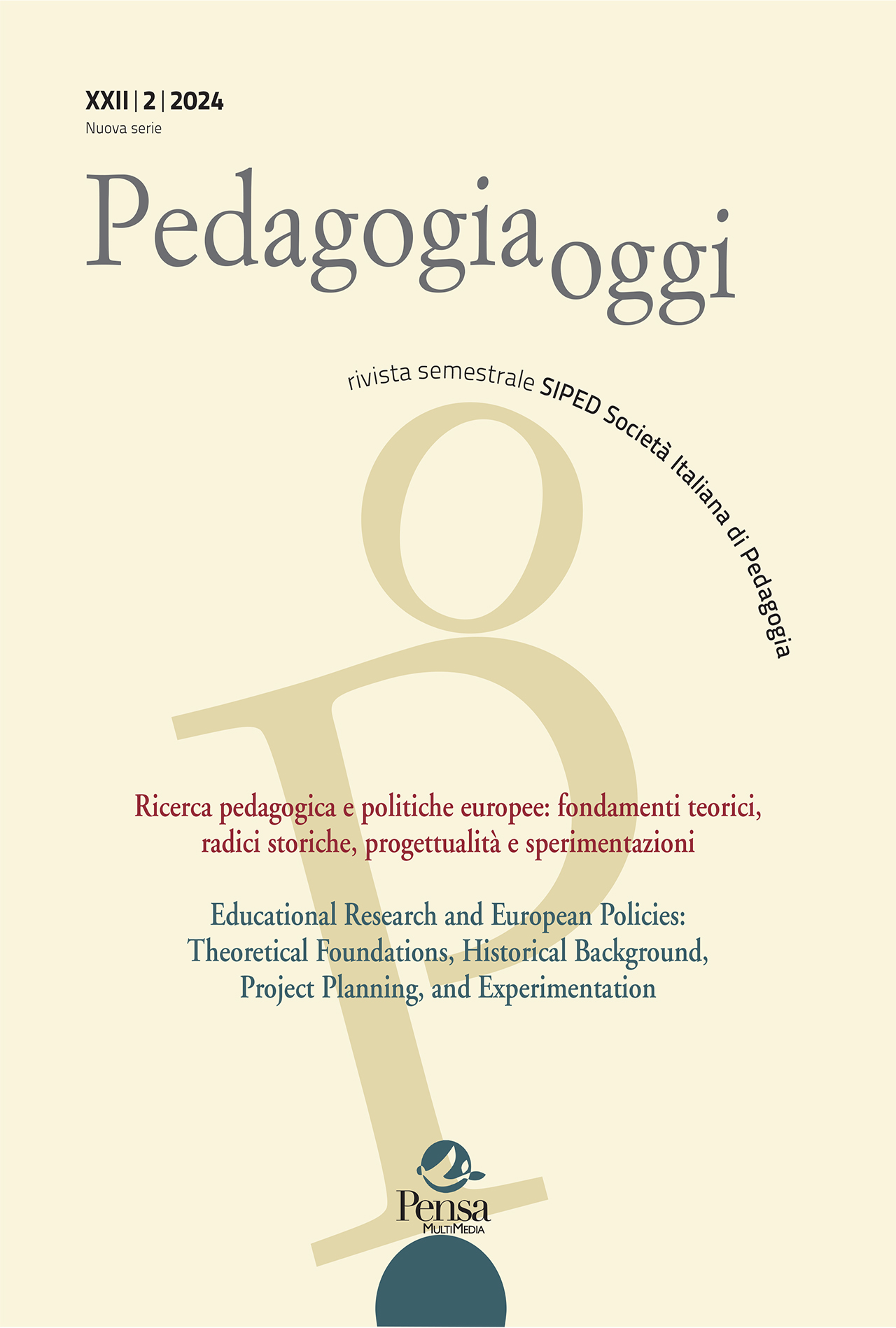Heritage education. The impact of European cultural policies on educational theory and on primary school curricula in Italy and Germany
DOI :
https://doi.org/10.7346/PO-022024-18Mots-clés :
Heritage Education, European heritage policy, Participation, Primary School Teaching, Literature ReviewRésumé
The contribution draws attention to heritage education, a major theme within European cultural policies. It is closely linked with the key competences of lifelong learning and the Agenda 2030. Recognising the value of heritage for European citizens, the Council of Europe’s Faro Convention (2005) advocates the idea of citizen participation in the co-construction of knowledge about heritage (Del Gobbo, et al., 2018), emphasizing also the need for heritage education. Yet, different national contexts and debates influence the implementation of cultural policies and thus also the attention paid to cultural heritage. As Fontal et al. (2023) remark, the field of heritage education lacks a solid theoretical foundation and systematic practices in Europe. The present paper highlights the cases of Italy and Germany, drawing on European recommendations and guidelines, national policies, primary school curricula and the scientific production of the last decade.
Téléchargements
Publié-e
Numéro
Rubrique
Licence
(c) Tous droits réservés Francesca Berti, Klaus-Christian Zehbe 2025

Cette œuvre est sous licence Creative Commons Attribution 4.0 International.




